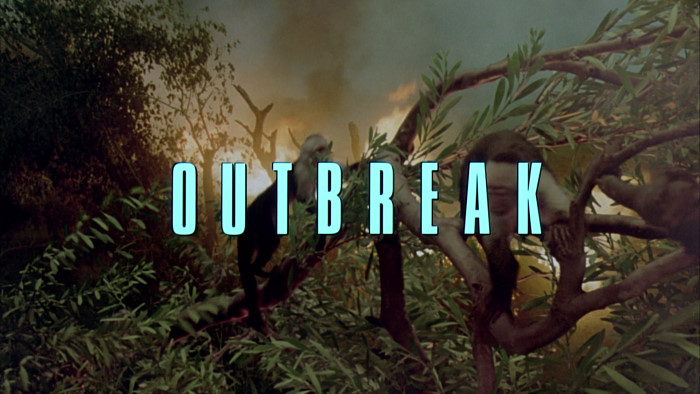
When this movie sticks to its procedural guns -- that is, when it tells the story of a super-infectious outbreak and the efforts by the military and the CDC to contain it -- it is in strong territory. When it heightens tension with romantic entanglements and infected loved ones, or evil generals hellbent on capturing and killing our hero to save their own necks, it kind of loses traction. (It's also, to be honest, built up on an awful lot of ugly coincidences and moronic slips in protocol: smuggling a monkey out of a cargo depot I can handle, but the nurse who sticks his hand in the centrifuge was a bit much.) Structurally, it falls right in line with a Roland Emmerich film: fake-out opening, meet the hot-headed genius nobody believes in, give him some data nobody will believe when he shouts about it, give him some deadlines and obstacles -- usually petty-minded antagonists and various loved ones in peril -- and start the clock running. And like Emmerich, it shortchanges some of the relationships and has a lot of needlessly clunky dialogue, but it moves along at a good clip by keeping the goals small and sequential, with heightened stakes and smart right-angle turns in all the right spots.
I don't have much to say. It makes me realize the kind of military approach exhibited in both versions of The Crazies is exaggerated and unreal, and I'd be better off toning it down if I can. That is, if I keep pushing on. (It's a weird thing, but watching Skyline earlier today kind of derailed me a bit. To stretch that metaphor, I have to decide if I get back on these tracks or drag myself over to some better ones now.) The military response in Outbreak (disregarding Donald Sutherland's turn as a ridiculously monomaniacal villain) is pretty reasonable and balanced. It's interesting to note that this was pre-9/11, but I actually imagine a response more like this one still being reasonable (possibly with more panic from the public and a lot more media scaremongering) over the round-em-up/fuck-it-kill-everyone approach from The Crazies. To be fair, though, Romero's a satirist, not a realist. So it's hardly a criticism to say Wolfgang Petersen is more of a realist.

No comments:
Post a Comment